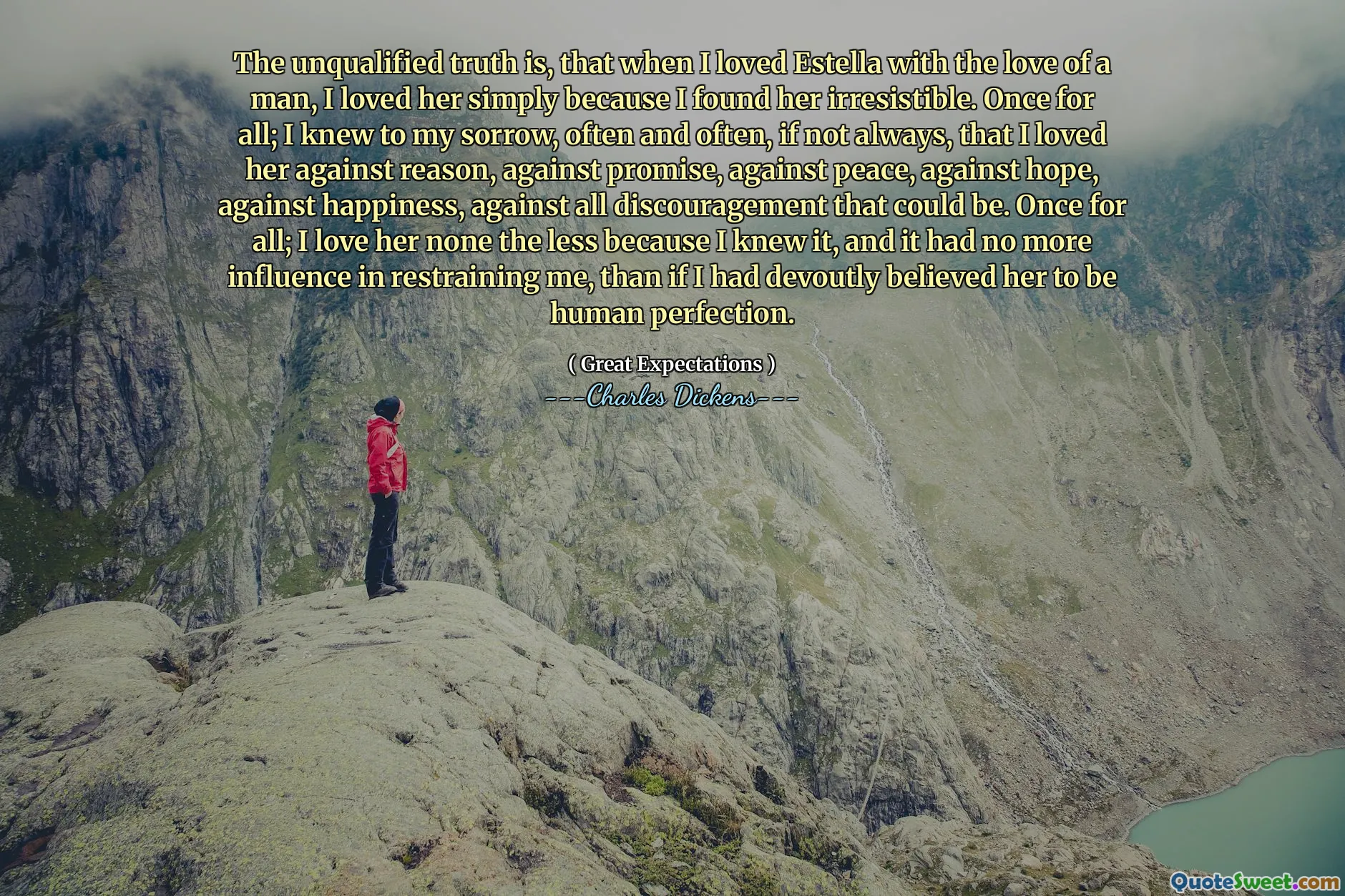
The unqualified truth is, that when I loved Estella with the love of a man, I loved her simply because I found her irresistible. Once for all; I knew to my sorrow, often and often, if not always, that I loved her against reason, against promise, against peace, against hope, against happiness, against all discouragement that could be. Once for all; I love her none the less because I knew it, and it had no more influence in restraining me, than if I had devoutly believed her to be human perfection.
This poignant reflection captures the tumultuous nature of love—an affection that often defies logic, promises, and conventional reason. The narrator admits to loving Estella purely because she is irresistible, an intense attraction that overrides all rational considerations. This unbridled passion demonstrates the complex interplay between emotion and reason, revealing how love can sometimes operate solely on impulse and infatuation rather than rational judgment. Dickens vividly portrays the internal conflict faced by the lover, who recognizes both the power and the peril of such love. Despite knowing that loving her against all odds lacks sound reasoning, he feels incapable of withdrawing his affection, emphasizing love’s irration, enduring even when it brings sorrow and suffering. This unresolved tension raises profound questions about the nature of true love—whether it is purely an uncontrollable force or something grounded in mutual respect and understanding. Dickens seems to suggest that genuine love often involves embracing the irrational parts of ourselves, acknowledging that the strongest passions might neglect rationality altogether. The emotional honesty in the quote is both beautiful and heartbreaking, illustrating that love’s fiercest forms are frequently those unaided by logic, existing in a space where hopes, fears, and irresistible allure intertwine. It’s a compelling reminder that love’s true power is not always enlightened by reason, but can still be profoundly meaningful and authentic.







